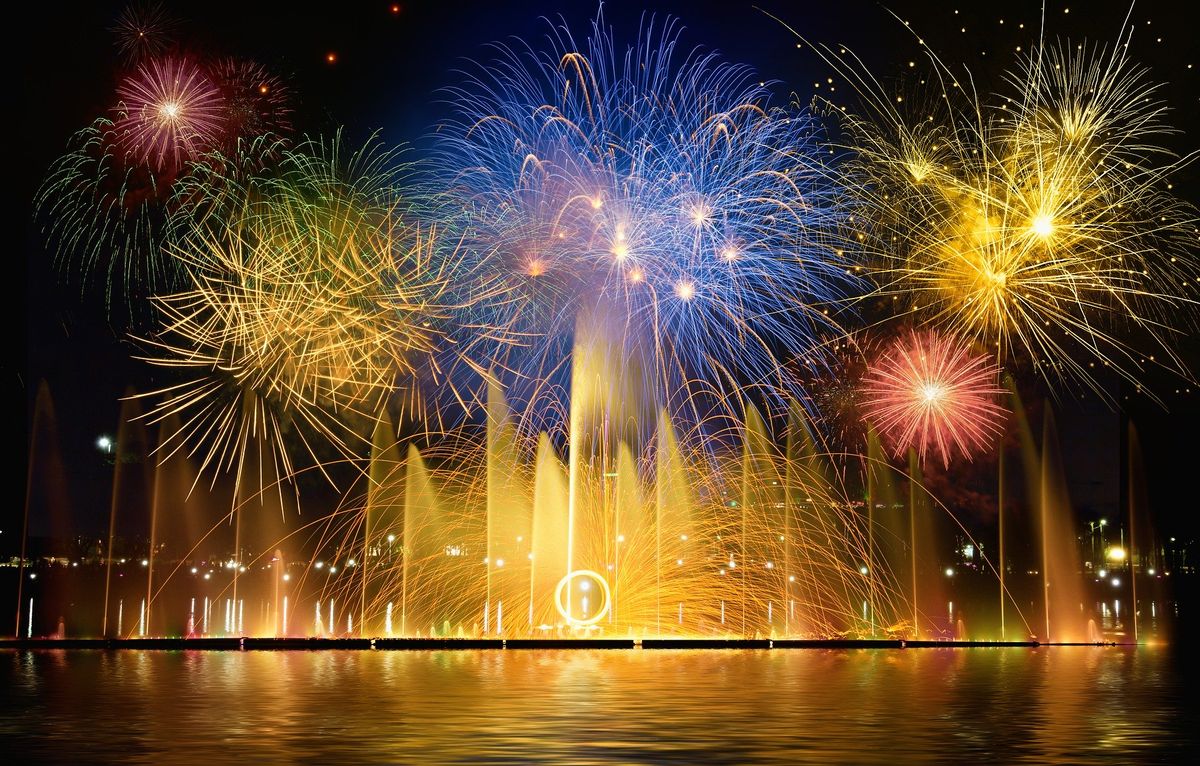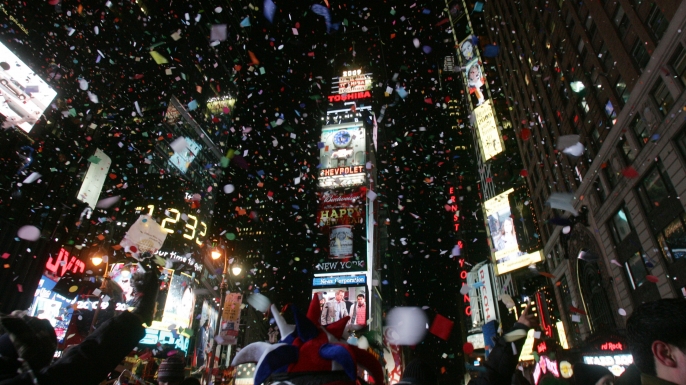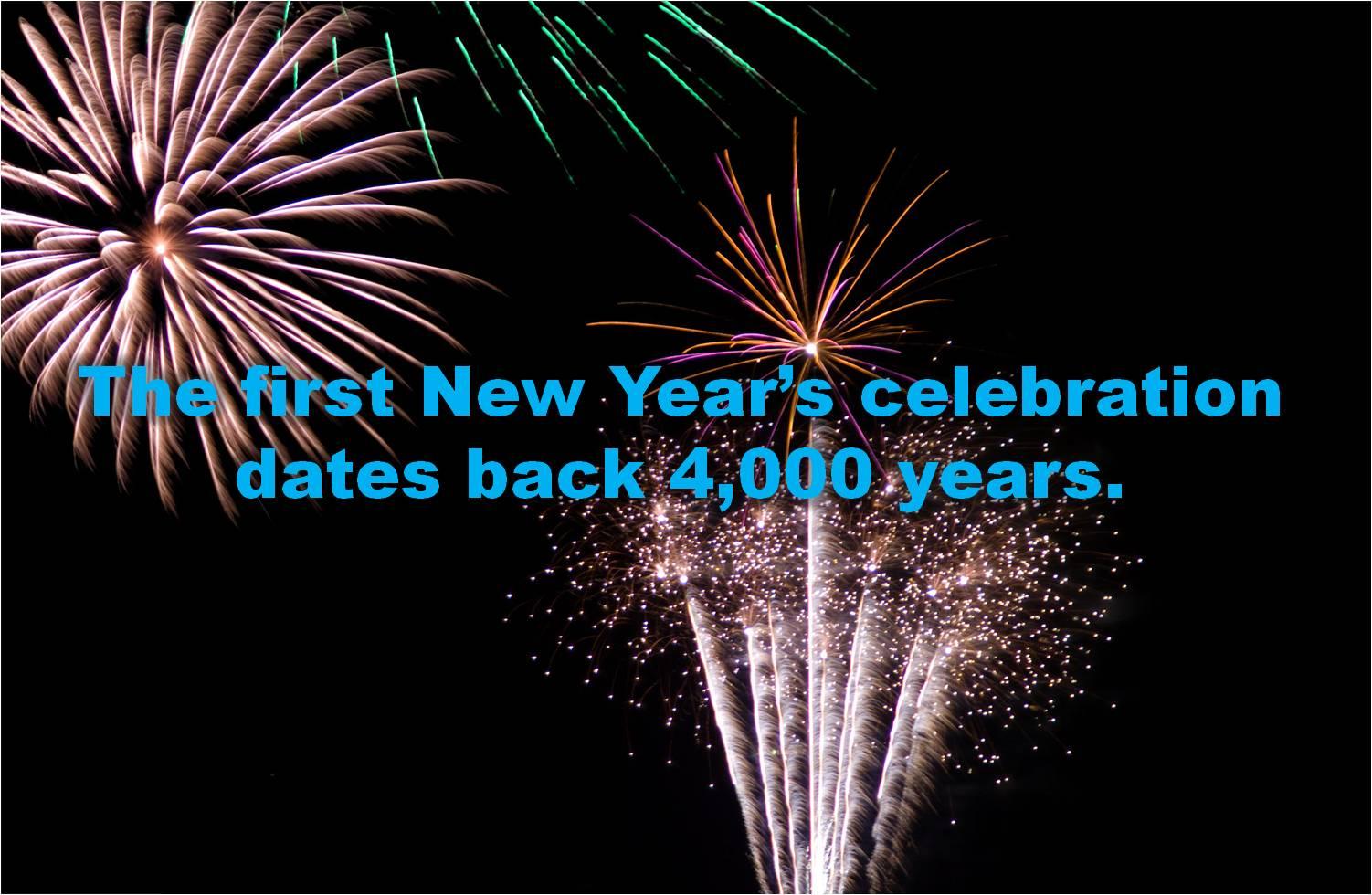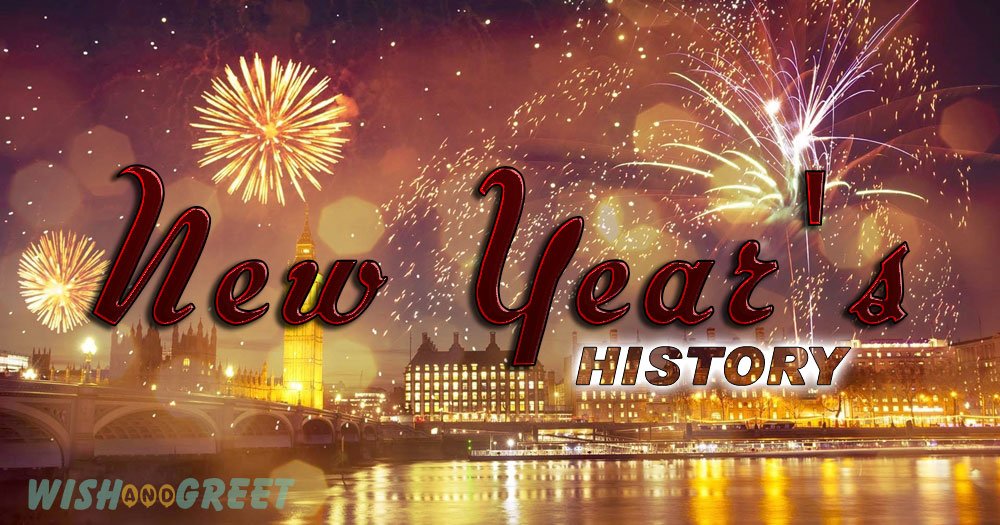Gallery
Photos from events, contest for the best costume, videos from master classes.












The earliest known record of a New Year festival dates from about 2000 bce in Mesopotamia, where in Babylonia the new year (Akitu) began with the new moon after the vernal equinox and in Assyria with the new moon nearest the autumn equinox (mid-September). The Ancient Babylonians established the first known practice of setting new year pledges, a tradition that has endured for over 4,000 years. Photograph by World History Archive, Alamy Stock Photo Get the facts on the ways 5 ancient civilizations rang in the New Year. The early Roman calendar consisted of 10 months and 304 days, with each new year beginning at the vernal equinox; On the evening of Dec. 31, as in many years past, millions of people around the world will stop what they're doing to watch a 12-foot, 11,875-pound crystal ball slowly descend a New York City The New Year is the time or day at which a new calendar year begins and the calendar's year count increments by one. Many cultures celebrate the event in some manner. [1] In the Gregorian calendar, the most widely used calendar system today, New Year occurs on January 1 (New Year's Day, preceded by New Year's Eve). From the origins of "Auld Lang Syne" to traditional foods, find out more about the history of New Year's Eve and New Year's Day. New Year celebrations, in typical years, often involve large gatherings of friends and family and a time to look forward to the future, mainly if a year was challenging. Celebrations of New Year had occurred for millennia, even when New Year's Day occurred at different times than January 1st. Here are five ancient ways our ancestors celebrated the start of a new year. The ancient Babylonians were among the first civilisations to have a record of a New Year celebration. Still celebrated today, records of Akitu can date the celebration back over 4,000 years. The earliest recording of a new year celebration is believed to have been in Mesopotamia, c. 2000 B.C. and was celebrated around the time of the vernal equinox, in mid-March. A variety of other dates tied to the seasons were also used by various ancient cultures. Before you ring in the new year, look back at the fascinating stories that make our New Year's history — including fun information about the holiday's origins, customs and traditions around In the Gregorian calendar, New Year's Day is the first day of the calendar year, 1 January.Most solar calendars (like the Gregorian and Julian) begin the year regularly at or near the northern winter solstice, while other cultures and religions that observe a lunisolar or lunar calendar celebrate their Lunar New Year at less fixed points relative to the solar year. On Dec. 31, 1904, New York’s Times Square saw its first New Year’s Eve celebration, with an estimated 200,000 people in attendance. The culinary traditions of the Black community tell a rich story that goes beyond mere sustenance; they encapsulate history, resilience and hope. As we approach the New Year, the meals prepared History and Importance of New Year's Day. The celebration of the New Year dates back thousands of years and has been observed by various cultures worldwide. The earliest recorded New Year The ancient Babylonians are said to have been the first people to make New Year’s resolutions, some 4,000 years ago. They were also the first to hold recorded celebrations in honor of the new It is a symbol of prosperity and abundance and is given as a gift to relatives and friends during the Christmas holidays but in view of New Year ‘s Eve: in fact, it is a good omen for the year to come. Let's see where this tradition comes from and the history of the glücksschwein. 'Amazing Grace' was first performed on New Year's Day over 250 years ago The song "Amazing James Walvin is a historian and the author of the new book "Amazing Grace: A Cultural History Of A 35 Fun New Year's Facts to Brush up on the Holiday's History It may surprise you how different new year traditions look around the world. By Adam Schubak and Cameron Jenkins Updated: Dec 29, 2022 Since crowds first began gathering in Times Square to commemorate New Year’s Eve over a century ago, it has been a ritual to flock to midtown’s brightly lit chaos to ring in new beginnings. At History of New Year’s Day The celebration of the new year dates back to ancient civilizations. The earliest recorded festivities were in Mesopotamia around 2000 BCE, where the new year was
Articles and news, personal stories, interviews with experts.
Photos from events, contest for the best costume, videos from master classes.











